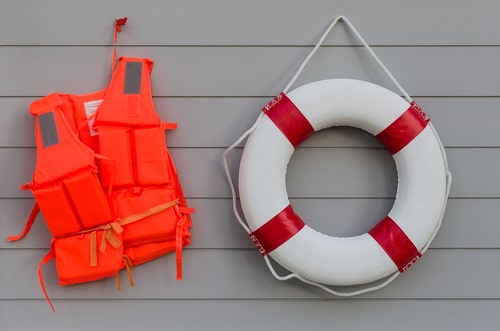Maritime law is a complex and specialized area of law that deals with maritime accidents and injuries. If you or a loved one has been involved in a maritime accident, it is important to hire a lawyer who is experienced in this area of the law. Maritime accidents can occur in many different ways, including collisions between ships, accidents on oil rigs, and more.
As a result, maritime lawyers must be familiar with a wide range of legal principles in order to effectively represent their clients. Without the help of a qualified maritime accident lawyer in Delray Beach, you may not be able to obtain the full compensation that you deserve.
At Steinberg Law, our attorneys have extensive experience handling maritime accident cases. We understand the unique challenges involved in these cases, and we know how to get results. We have a proven track record of success, and we’re ready to put our experience to work for you.
If you’ve been involved in a maritime accident, contact Steinberg Law today to schedule a free consultation with a Delray Beach personal injury lawyer.
What Does a Maritime Lawyer Do?
Maritime lawyers represent clients in matters touching upon the law of the sea.
Their practice may include Admiralty law, which governs maritime commerce and navigation, as well as environmental law, which regulates activities that may pollute or damage the marine environment. Maritime lawyers also handle cases involving collisions between vessels, cargo claims, salvage rights, jettisoning of cargo, and pollution.
They may advise clients on matters related to maritime contracts, including charter parties and shipbuilding agreements. Maritime lawyers also represent fishermen and other workers in the seafood industry in cases involving injuries at sea or on the docks. They may assist passengers injured on cruise ships.
The Delray Beach maritime lawyers at Steinberg Law have a particular focus on maritime accidents.
Maritime accidents can occur in a variety of ways, and often have catastrophic consequences. They can be caused by storms, collisions, mechanical failures, or human error. Regardless of the cause, maritime accidents can result in serious injuries or even death.
That’s why it’s essential to have an experienced maritime accident lawyer on your side.
What Does a Maritime Lawyer Need to Know?
Maritime lawyers need to be well-versed in a variety of legal areas in order to best represent their clients. Admiralty law, which governs shipping and transportation on navigable waters, is something that maritime lawyers need to understand.
However, they also need to have a working knowledge of areas such as environmental law, property law, and contract law. In addition, maritime lawyers need to be familiar with the rules and regulations of various shipping organizations, such as the International Maritime Organization.
It’s also essential for maritime lawyers to know the maritime industry and the science behind it. This is because maritime law covers a wide range of topics, from environmental regulations to navigation rules to cargo claims.
Maritime lawyers need to be able to understand complex technical information and apply it to legal issues. They also need to be able to work with clients from all over the world, as maritime law is a truly international field.
In short, maritime lawyers need to be knowledgeable, adaptable, and global in their thinking.
Compensation Claims for a Maritime Injury
Maritime law is a complex and specialized area of law that deals with injuries that occur on navigable waters.
If you have been injured while working on a boat or ship, you may be entitled to financial compensation for your medical expenses, lost wages, and pain and suffering. Maritime law also covers injuries that occur while working on offshore oil rigs, docks, and other maritime operations.
The process of recovering can be complex and time-consuming, but an experienced maritime lawyer can help you navigate the legal system and maximize your financial recovery.
What Is the Jones Act and Who Is Covered?
The Jones Act is a federal law that provides essential protections for workers who are employed on navigable waters. It was passed in 1920 and named after Senator Wesley Jones, who was a strong supporter of maritime workers’ rights.
The Act covers a wide range of workers, including seamen, longshoremen, and pilot boat operators. It also applies to any vessel that is used in interstate or foreign commerce. The Jones Act guarantees workers the right to medical care and compensation if they are injured while working.
In addition, the Act provides protections for workers who are fired or discriminated against by their employers.
To be qualified as a seaman, a worker must spend at least 30% of their time working on a vessel. The Jones Act is an important law that ensures that workers who are employed on navigable waters receive basic protections and rights.
What Are Common Causes of Maritime Injury?
Maritime workers are susceptible to a variety of injuries, including slips, trips, and falls, back strains, and crush injuries.
One of the most common maritime injuries is fractures, which can occur when workers are struck by falling objects or when they slip and fall on deck. Fractures can also occur when workers are trapped between two objects, such as when they are caught between a loading container and the side of the vessel.
In addition to fractures, maritime workers often suffer from back strains and other musculoskeletal injuries. These injuries can be caused by heavy lifting, repetitive motions, or prolonged periods of standing.
Crush injuries are another common maritime injury, and can occur when workers are caught between two heavy objects or when they are struck by falling cargo.
What Should I Do After a Maritime Injury?
Due to the complex and ever-changing nature of maritime law, it can be difficult to know what to do after a maritime injury. Maritime accidents can be serious, and it is important to take quick action if you are injured in one. First and foremost, seek medical attention as soon as possible. This will help ensure that you receive the treatment you need and will also create documentation of your injury.
Next, report the accident to your supervisor or captain. This is important for two reasons. First, they need to be aware of the accident so that they can take steps to prevent it from happening again. Second, they will likely need to file an accident report, which will create more documentation of the accident.
Gathering witness statements can also prove beneficial. If there are other workers who witnessed the accident, get their contact information so that they can provide a statement if necessary. It’s also wise to photograph the injuries or any damage you have sustained in the accident. This can play a major role in the event that you pursue legal action against your employer.
Finally, if you think you may have a legal claim for compensation, it is important to speak with an attorney as soon as possible. A maritime accident lawyer in Delray Beach can help you understand your legal rights and options and can begin gathering the evidence necessary to build a strong claim.
Contact a Maritime Accident Lawyer in Delray Beach Today!
If you have been involved in a maritime accident, the experienced attorneys at Steinberg Law can help. Our Delray Beach maritime accident lawyers are well-versed in maritime law and have a track record of success in handling these types of cases. We understand the challenges you are facing and will fight to get you the compensation you deserve.
Call us today at 877-783-4611 and let us start discussing your case.


